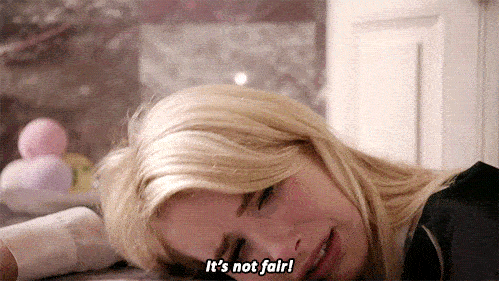
We’ve all gone through it at some point. It probably started with your compulsory work experience in year 10, when you ended up sat in the corner of your mum’s office filing and making tea. But even at the ripe old age of 21, it’s not rare for students and graduates to be completing unpaid graduate internships in a bid to get the job of their dreams.
In certain industries, especially in the media and arts, unpaid internships are seen as par for the course. To get a job you need experience, but you can’t get experience without a job. So you’re expected to work for free, despite the fact that literally nothing else in this world is free. Recent research has just shown that those who carry out unpaid work after graduation end up ВЈ3,500 worse off than those who go straight into paid work, and ВЈ1,500 worse off than those who go into further study. So really what’s the point? How do you know whether an unpaid placement is worth it?
How long do they want you for?

Essentially if a placement is more than two weeks long, you should be getting paid for it. Companies should never expect you to take a whole month out of your year to work for free. Time is your most valuable commodity so use it wisely. Plus, you might not necessarily gain anything extra from staying longer than a few weeks, so if they’re not paying you, you have to ask yourself what you’re getting out of it.
Is it a big company?

You would think that the larger the organisation, the more likely you are to get paid but this is rarely true. Larger organisations may have more money to spend, but they also know that their ‘big name’ is enticing and students will be willing to sell an arm to get their foot in the door.
But you need to think about what you’re actually going to gain from the placement. Being able to pop a big name on your CV might look impressive to potential employers, but if you’re going to be stuck transcribing interviews, then it might not do a lot for your own personal development.
In contrast, a smaller company might allow you to get stuck in more and actually make a real difference. They might not be able to afford to pay you, but they are more likely to remember your name for job openings later.
Know your worth

Compare the placement with what you’ve previously done. Are you going to be slightly out of your depth, learning new skills every day? Or have you done all this stuff before? If it’s the latter, you should put your foot down. No matter what industry you’re in, if this is a skill you’ve already mastered you should be paid for your work. Just because you’re younger than the people you’re working with, don’t let that make you feel inferior, and don’t be afraid to stand your ground when it comes to asking for payment.
Look for paid opportunities instead

Everyone might be scrabbling for a place on that unpaid internship at a big name company, but if you take a step back you might actually find a paid opportunity which will do you better. I have spent hundreds of pounds funding transport and accommodation for unpaid work experience placements, but have always learnt much more in paid positions. It might not be exactly what you want to get in to, or the company might be quite small, but if they’re paying you they’re likely to give you more responsibility and you’ll ultimately learn a lot more.
Are they damaging?

The recent findings that unpaid internships might actually make you worse off in the long run is worrying. Am I hindering my future career path by working for free? The unfortunate answer is that many employers just don’t take unpaid roles that seriously, no matter where you are or what you’re doing. It’s not always the case, but sometimes someone who has been in a paid role will be perceived as more experienced and than someone doing the same role unpaid. And when paid roles in some industries are like gold dust, this is super frustrating.
If you’re in a position to be able to carry out an unpaid internship then you shouldn’t be afraid to go for it, but you also shouldn’t be afraid to ask for payment if you think it’s appropriate. Just remember your fellow students and grads who aren’t lucky enough to be able to do so.
The system is unfair and it needs to change. It isn’t going to happen overnight, but if students and graduates start to collectively raise the issue and challenge the consensus that unpaid internships are acceptable, employers will start to change their ways. In such a competitive job market employers know they call the shots. Now it’s time we take back the power.
Connect with Debut on Facebook, Twitter and LinkedIn for more careers insights.


